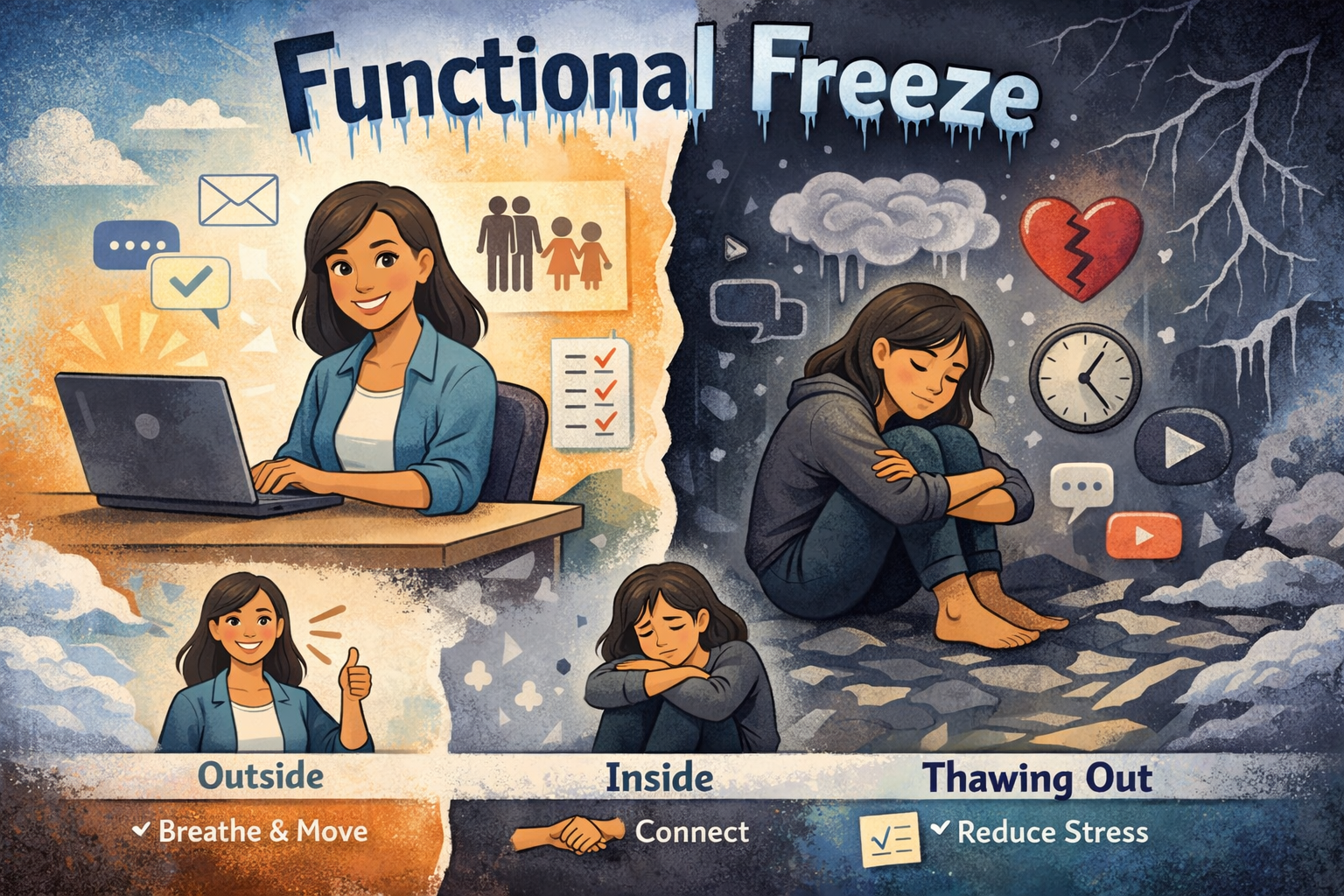Do you get stuck in continuous thought cycles about future concerns or past replays? Do you feel getting trapped in negative loop of thoughts and not able to get out from that negativity? If it is so, then you are not alone. People often experience difficulties with excessive thinking, which we call overthinking. Overthinking extends beyond typical thinking because it goes beyond ordinary mental processing. The continuous loop depletes your energy, vitality and confuses your thinking while experiencing stress and anxiety. The overthinking trap provides an exit which leads to mental freedom and personal liberation.
What Is Overthinking?
Too many or extended periods of thinking about something constitute overthinking. People tend to experience worries, doubts along with negative scenario predictions during overthinking. Research from the Journal of Abnormal Psychology indicates that overthinking produces strong connections with depression and anxiety symptoms. Your mental preoccupation makes it difficult to move forward because it prevents you from finding tranquillity.
Jon Kabat-Zinn who serves as a mindfulness teacher and Mindfulness-Based Stress Reduction (MBSR) founder describes overthinking as a form of “thinking disease.” He clarifies how people frequently mistake their thoughts for objective reality while allowing thoughts to dictate emotional responses and behavioral decisions. According to Kabat-Zinn, you cannot stop waves from coming but you can learn to surf them. You cannot block thoughts from appearing but you can transform your connection with them.
The Dangers of Overthinking
Excessive mental activity produces negative effects on your psychological state as well as your physical condition. Research reveals that persistent overthinking produces several negative effects including:
-
Increased anxiety and stress
-
Sleep problems
-
Difficulty making decisions
-
Lowered self-esteem
-
Physical issues like headaches or stomach problems
The research conducted by Yale University psychologist Susan Nolen-Hoeksema revealed that people who persistently think about their problems (known as ruminators) experience more severe depression that lasts longer than individuals who do not ruminate.
How to Handle Overthinking
Thankfully, there are simple but powerful strategies to stop overthinking and reclaim your mind.
1. Practice Mindfulness
To pay complete attention to the present moment without making judgments forms the basis of mindfulness. It means experiencing ‘non-judgemental’ awareness. The research of Jon Kabat-Zinn demonstrates how mindfulness enables people to overcome their excessive ‘mental preoccupation’. The practice of mindfulness teaches you to observe your thoughts while remaining detached from their content/meaning.
Gently shift your attention toward current experiences such as the sensation of your feet touching the floor and the external bird sounds when you detect overthinking patterns.
2. Identify and Label Your Thoughts
The simple practice of calling your thoughts "just thinking" can help you establish a mental boundary between yourself and your thoughts. This practice enables you to establish emotional detachment from your thoughts. You should replace "I am anxious" with "Anxious thoughts are present in my mind." A minor shift in your approach will lead to substantial change in perception.
3. Limit Thinking Time
You should allocate certain time during the day for worrying. You should consciously fix those moments for thinking on the issue at hand. For example, give yourself 15 minutes in the evening. When your mind begins racing beyond the designated time tell yourself that you will address the matter at a different time. Therefore, no worrying at that moment.
4. Take Small Steps
The inability to stop thinking keeps individuals trapped. Break the cycle by taking small actions. Small steps toward action will increase your sense of control and redirect your attention from persistent mental cycles.
5. Be Kind to Yourself
Harsh self-criticism often accompanies excessive thinking. Practice self-compassion. All people encounter mental battles with their thoughts at least occasionally. Kabat-Zinn reminds us that being alive means you possess more positive aspects than negative ones.
What Research Says
Research conducted in Behaviour Research and Therapy during 2010 demonstrated that MBCT decreased overthinking and protected patients with depression from relapse. Harvard University researchers discovered that mindfulness practitioners experienced reduced stress levels together with increased well-being.
Final Thoughts
Stopping your thoughts is not the objective for escaping the overthinking cycle. The goal is to establish a different connection with your thoughts. The mindfulness teachings of Jon Kabat-Zinn receive research support because they provide a route to freedom. The practice of straightforward methods along with self-compassion enables you to regain control of your thoughts and your existence.
The mind serves as a strong instrument yet it needs to function under your control rather than allowing the mind to control you.
Are you looking for inner peace, deep relaxation or holistic solutions for mental health? Visit http://themindtherapy.in - your space for online counselling/therapy, free mental health tests, meditation, sound therapy etc.
Mind Therapy is India's trusted platform for mental health, mindfulness, and holistic healing. Explore expert-led programs, guided meditation, sound therapy and counselling at http://themindtherapy.in














